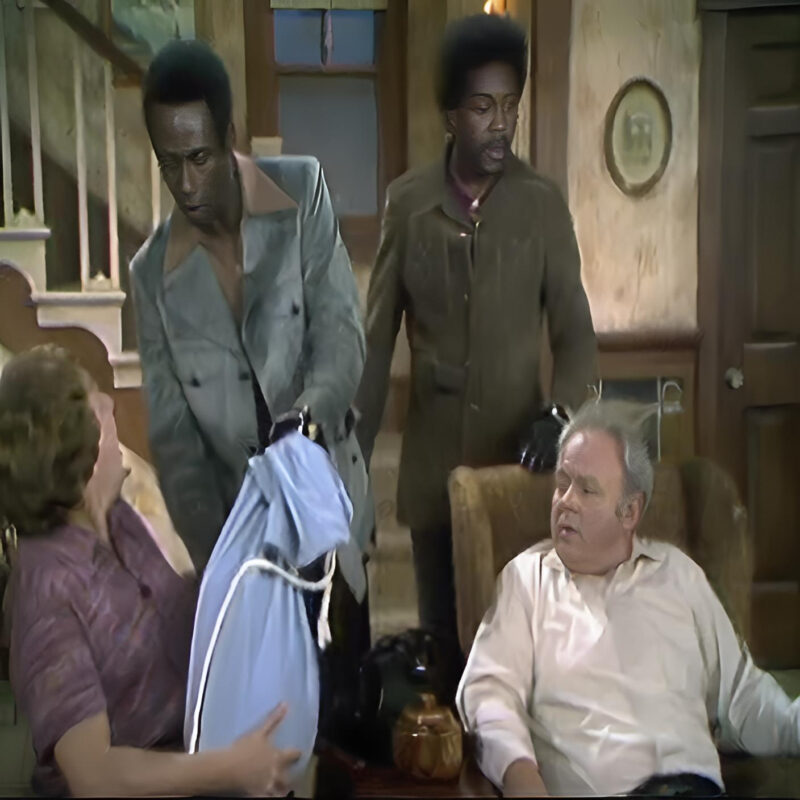
Carroll O’Connor immortalized the character of Archie Bunker on CBS’s trailblazing series All in the Family for nine seasons, continuing his legacy for an additional four seasons on the spin-off Archie Bunker’s Place. Archie, the quintessential working-class patriarch from Queens, was joined by his ever-cheerful wife, Edith (Jean Stapleton), his outspoken daughter, Gloria (Sally Struthers), and his politically fervent son-in-law, Michael Stivic (Rob Reiner).
Archie Bunker was unapologetically bigoted, with prejudiced views on women, people of color, and sexuality. These views, and the constant challenges to them by his son-in-law Mike, formed the heart of the show’s narrative.
Norman Lear, the genius behind All in the Family, along with Bud Yorkin, drew inspiration for Archie from two sources: his own father and a character from the British sitcom Till Death Do Us Part.
The Real-Life Inspiration Behind Archie Bunker
Archie’s character was partly modeled after Lear’s father, Herman Lear, a gruff salesman who had a history of legal troubles, including a stint in prison for fraud when Lear was just nine. Herman’s prejudices and sayings found their way into Archie’s dialogue, including calling Mike “the laziest white man he ever met” and telling Edith to “stifle herself,” both phrases borrowed directly from Lear’s father.
Despite Archie’s many flaws, he was portrayed as a complex and contradictory figure, much like Lear’s father. Lear explained that his father, despite his faults, was a lovable figure. “I can’t overstate how much I loved him,” Lear said. “You hear me talk about him lightly because I cannot make him a villain, you know?”
Michael Stivic: A Reflection of Lear
Just as Archie was modeled after Lear’s father, Michael Stivic was somewhat modeled after Lear himself. The frequent political and cultural arguments between Michael and Archie echoed the real-life debates Lear had with his own father. Archie’s first words about Mike were that he was a “meathead,” another direct quote from Lear’s father.
Historian Jim Cullen, in his book Those Were the Days: Why All in the Family Still Matters, argues that the generational conflict between Archie and Michael served to explore and dialogue about major social issues of the time. It also allowed Lear to retroactively push back against his father’s bigotry, ensuring that Archie’s prejudiced statements did not go unchecked.
Borrowing from British Television
Lear also drew inspiration from the BBC sitcom Till Death Do Us Part. He acquired the American rights to the show, which bore many similarities to All in the Family. Archie’s character was based on Alf Garnett, played by Warren Mitchell and created by Johnny Speight. Alf, like Archie, had a well-meaning wife and a daughter who married a politically active socialist.
While Alf might have called his wife a “silly old moo” instead of Edith’s “dingbat,” the characters’ temperaments and prejudices were strikingly similar. However, Archie was portrayed as slightly softer and more open to change, making him more palatable to American audiences, much like Steve Carell’s Michael Scott compared to Ricky Gervais’ David Brent in The Office.
Through the character of Archie Bunker, All in the Family not only entertained but also sparked crucial conversations about social issues, leaving an indelible mark on television history.
